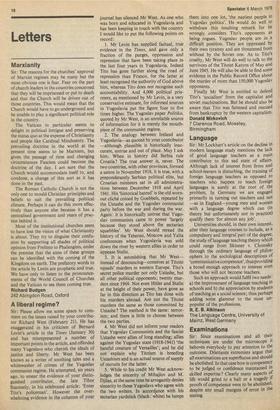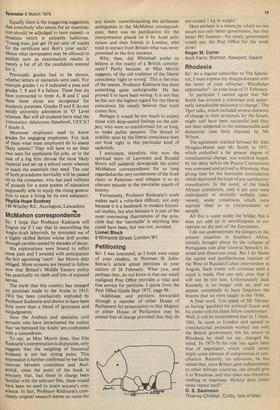Examinations Sir: Since examinations and all their techniques are under
the microscope It behoves everybody to pay attention to the outcome. Dilettante extremists argue that all examinations are superfluous and should be abolished. In that case how is competency to be judged or confidence maintained In skilled expertise? Clearly many aspects of life would grind to a halt or a tragedy If proofs of competence were to be abolished, despite any small margins of error in the testing.
Equally there is the staggering suggestion that everybody who enters for an examination should be adjudged to have passed—a situation which is palpably ludicrous. 'Young man, just get 10 per cent of marks for the certificate and Bob's your uncle'. Hence what newspapers may be allowed to Publish now as examination results is merely a list of all the candidates entered for it.
Previously grades had to be shown, Whether letters or numerals were used. For example grades I to 6 indicated a pass and grades 7, 8 and 9 a failure. These first six have contracted to three A, B and C and these three alone are recognised for academic purposes. Grades D and E do not satisfy university admission in '0' Level schemes. But will all students have read the Universities Admissions Handbook, UCCA? I doubt it.
Moreover employers need to know grades for engaging employees. For lack of them what must employers do to assess likely talents? They will have to set their own tests for applicants for jobs, or in the ease of a big firm choose the most likely material and set up a school room wherein to teach the essentials they need. The cost of both procedures inevitably will be passed on to the consumer, who has paid millions of pounds for a state system of education supposedly able to equip the rising generation to earn a living by its own adequacy. Phyllis Hope Scotney 146 Whalley Rd., Accrington, Lancashire mar



































 Previous page
Previous page